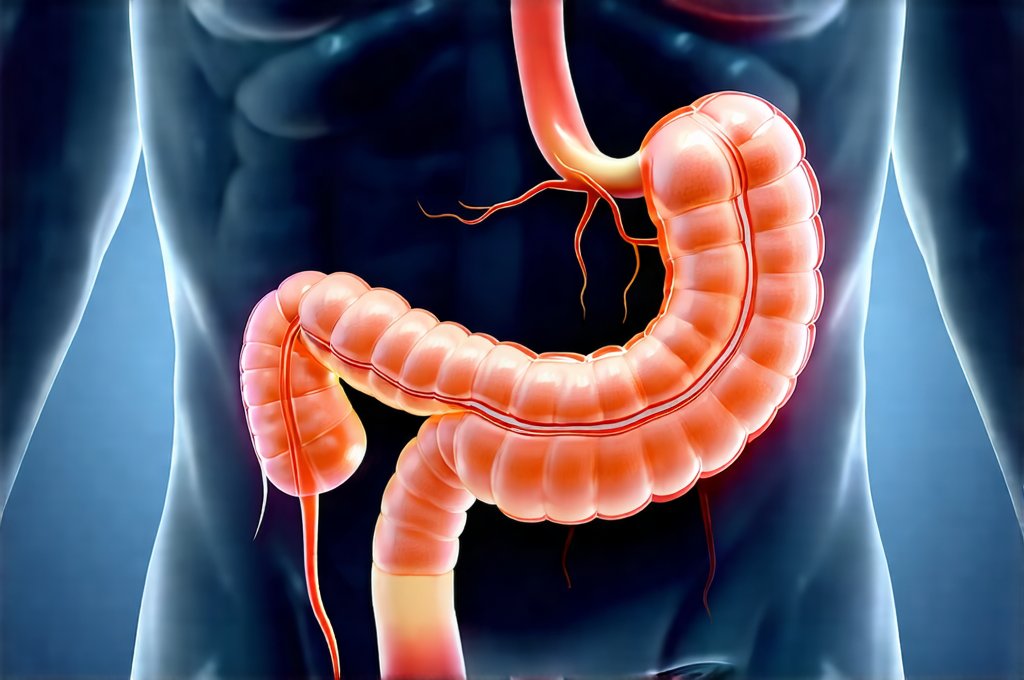Bloating – that uncomfortable feeling of fullness, tightness, and sometimes even pain in your abdomen – is incredibly common. Most people experience it occasionally after a large meal or particularly gassy food. But what happens when bloating isn’t just an occasional annoyance? What if it becomes persistent, sticking around despite dietary changes and leaving you feeling constantly uncomfortable? Many factors can contribute to chronic bloating, ranging from food sensitivities and underlying medical conditions to stress and even the way we eat. Increasingly, research is pointing towards a surprising culprit: shifts in gut pH – the acidity level within our digestive system. Understanding this complex relationship between pH, gut health, and persistent bloating is crucial for finding lasting relief.
The human gut is an incredibly intricate ecosystem, home to trillions of microorganisms collectively known as the gut microbiota. This microbial community plays a vital role in digestion, immunity, and even mental health. Maintaining a balanced gut environment is essential for optimal functioning, and pH level is one of the key factors that influences this balance. A healthy gut typically maintains a specific pH range which varies along its length – more acidic in the stomach to aid protein breakdown, then gradually becoming more neutral further down the digestive tract to support beneficial bacteria. Disruptions to this delicate pH balance can create an environment where unwanted microbes thrive, leading to inflammation, impaired digestion, and ultimately, persistent bloating. This is not always a simple cause-and-effect relationship, but rather a complex interplay of factors that can perpetuate a cycle of discomfort. If you experience chronic ear pain alongside these digestive issues, it might be related to reflux.
The Role of Stomach Acid and Gut pH
The stomach’s naturally acidic environment (pH typically between 1.5 and 3.5) isn’t just for breaking down food; it’s also our first line of defense against harmful pathogens ingested through food or drink. Hydrochloric acid (HCl), produced by parietal cells in the stomach lining, is key to this process. When HCl production is insufficient – a condition known as hypochlorhydria – food isn’t properly digested and can ferment in the gut, leading to gas production and bloating. This undigested food also provides an opportunity for bacteria to proliferate higher up in the digestive tract than they should be, further exacerbating symptoms. Conversely, excessive stomach acid (hyperchlorhydria), while less common, can irritate the stomach lining and contribute to discomfort, although it doesn’t typically cause bloating directly as much as other gastrointestinal issues.
However, it’s important to understand that low stomach acid isn’t always the problem. Many people with chronic bloating actually have too much acidity in certain areas of the small intestine – a phenomenon known as Small Intestinal Bacterial Overgrowth (SIBO). SIBO occurs when excessive amounts of bacteria accumulate in the small intestine, where they shouldn’t be. These bacteria ferment carbohydrates, producing gas and causing bloating, abdominal pain, and altered bowel habits. The increased bacterial activity also contributes to an overall shift in gut pH, making it more acidic in areas where it should be relatively neutral. This highlights the complexity of gut pH imbalances and why self-diagnosis is rarely effective. Sometimes these issues can present as ringing in the ears, alongside other symptoms.
Furthermore, medications like proton pump inhibitors (PPIs) – frequently prescribed for heartburn and acid reflux – can significantly reduce stomach acid production over time. While providing temporary relief from heartburn, long-term PPI use may inadvertently contribute to hypochlorhydria and the subsequent digestive issues that lead to bloating. This is why it’s crucial to work with a healthcare professional to determine the appropriate course of treatment for acid reflux and explore alternative strategies whenever possible. It’s also important to be aware of whether GERD may be contributing to your symptoms, as it can often mimic other digestive complaints.
Identifying Potential pH Imbalances
Pinpointing shifts in gut pH isn’t straightforward, as direct measurement requires invasive procedures like an endoscopy with biopsy. However, there are several indirect indicators that can suggest a potential imbalance. These include:
- Persistent bloating, especially after meals containing carbohydrates.
- Gas and flatulence.
- Heartburn or acid reflux (although this doesn’t always indicate high stomach acid).
- Nutrient deficiencies, as impaired digestion hinders absorption.
- Undigested food particles in stool.
- A history of antibiotic use, which can disrupt the gut microbiota.
Several functional tests are becoming increasingly available that offer insights into gut health and potential imbalances. These include:
1. Stool testing: Can analyze the composition of the gut microbiome and identify markers of inflammation or dysbiosis.
2. Breath testing: Used to diagnose SIBO by measuring hydrogen and methane levels in breath after consuming a specific sugar solution.
3. Organic Acids Testing (OAT): Assesses metabolic function and can reveal imbalances related to microbial activity.
It’s crucial to remember that these tests provide information, not definitive diagnoses, and should always be interpreted by a qualified healthcare professional who understands gut health. If you experience jaw or ear pain alongside digestive issues, exploring whether GERD could be a factor is worthwhile.
Diet’s Impact on Gut pH & Bloating
What we eat directly impacts the pH levels throughout our digestive system. Highly processed foods, sugary drinks, and excessive alcohol consumption can all disrupt the delicate balance of the gut microbiota and contribute to an unfavorable pH environment. Conversely, a diet rich in fiber-rich fruits and vegetables, fermented foods, and lean protein supports a healthy microbiome and promotes optimal digestion.
Specifically:
* Fermented foods like yogurt, kefir, sauerkraut, and kimchi contain probiotics – beneficial bacteria that can help restore balance to the gut microbiota and improve pH levels.
* Prebiotic-rich foods (onions, garlic, asparagus, bananas) provide nourishment for these beneficial bacteria, further strengthening the ecosystem.
* Reducing intake of refined sugars and processed carbohydrates minimizes fuel for harmful bacteria in the small intestine, potentially alleviating SIBO symptoms.
However, dietary changes alone aren’t always enough. Food sensitivities can also play a significant role in bloating, even if pH levels are relatively stable. Identifying and eliminating trigger foods – through an elimination diet under the guidance of a healthcare professional – can often provide substantial relief.
Restoring Gut Balance & Reducing Bloating
Restoring gut balance requires a multifaceted approach that addresses both pH imbalances and underlying causes. Here’s a step-by-step approach:
1. Identify and address food sensitivities: An elimination diet can help pinpoint trigger foods.
2. Support healthy stomach acid production: Consider strategies like mindful eating (chewing thoroughly) and avoiding overeating, which can overwhelm the digestive system. Some individuals may benefit from betaine HCl supplementation under strict medical supervision, as incorrect use can be harmful.
3. Incorporate probiotic-rich foods or supplements: Choose strains that have been shown to support gut health and address specific imbalances.
4. Increase prebiotic intake: Feed the beneficial bacteria in your gut with fiber-rich foods.
5. Manage stress levels: Chronic stress can negatively impact digestion and gut pH. Practices like yoga, meditation, and deep breathing exercises can help mitigate these effects.
It’s important to remember that healing the gut is a process, not an event. Consistency and patience are key. Working with a registered dietitian or functional medicine practitioner specializing in gut health can provide personalized guidance and support throughout this journey. Ultimately, addressing persistent bloating requires understanding the underlying causes and implementing a holistic approach that supports optimal digestive function.
Long-Term Gut Health & Prevention
Maintaining long-term gut health is crucial for preventing future episodes of bloating and supporting overall well-being. This involves adopting lifestyle habits that nurture the gut microbiome and promote balanced pH levels. Regular exercise, for example, has been shown to positively impact gut microbial diversity. Adequate sleep is also essential, as sleep deprivation can disrupt the gut microbiota and increase inflammation.
Beyond diet and lifestyle, minimizing unnecessary antibiotic use is paramount. Antibiotics kill both harmful and beneficial bacteria, significantly disrupting the gut ecosystem. If antibiotics are necessary, consider supplementing with probiotics during and after treatment to help restore balance. Finally, staying hydrated by drinking plenty of water helps maintain optimal digestive function and supports a healthy gut environment.
The connection between gut pH, bloating, and overall health is undeniable. While persistent bloating can be frustrating and debilitating, understanding the underlying mechanisms empowers individuals to take control of their digestive health and find lasting relief. It’s crucial to approach this issue holistically, recognizing that there’s no one-size-fits-all solution. By focusing on dietary adjustments, lifestyle modifications, and personalized support from healthcare professionals, you can cultivate a healthy gut and enjoy a life free from the discomfort of persistent bloating. If tingling in your arms or hands accompanies these symptoms, it’s worth investigating if GERD could be playing a role. And for parents concerned about their children, understanding whether GERD might be disrupting sleep is crucial. Finally, if you experience a lump sensation in the throat alongside bloating, it’s important to consider if reflux could be contributing.


















